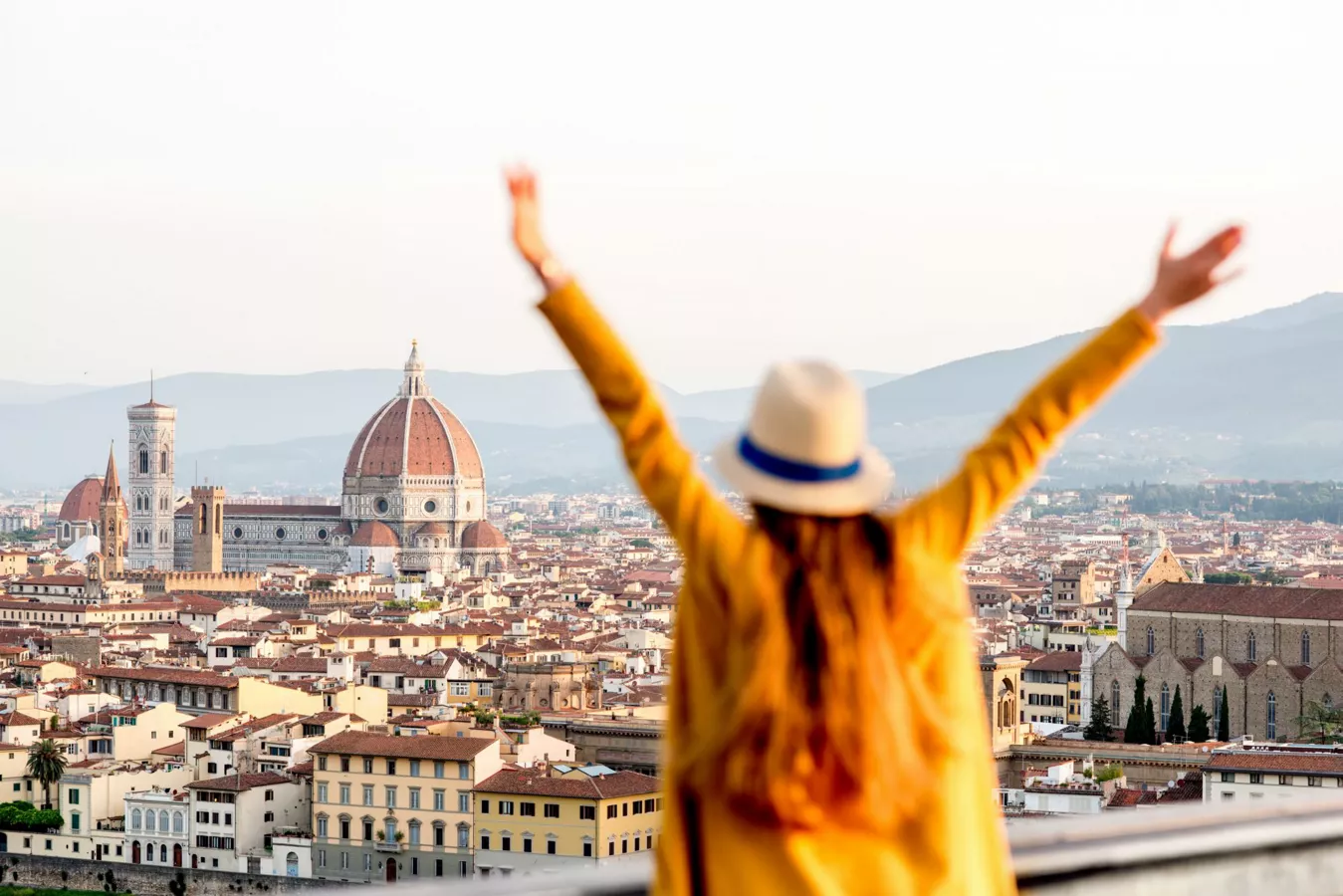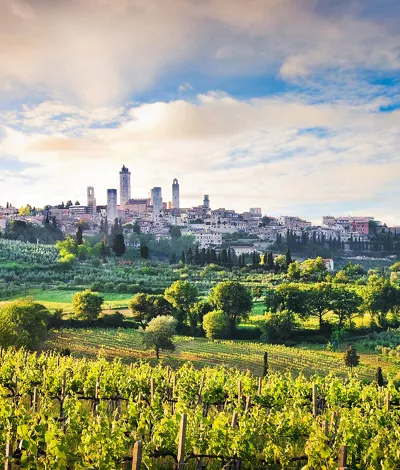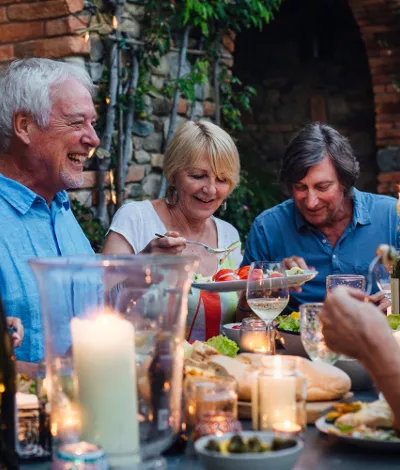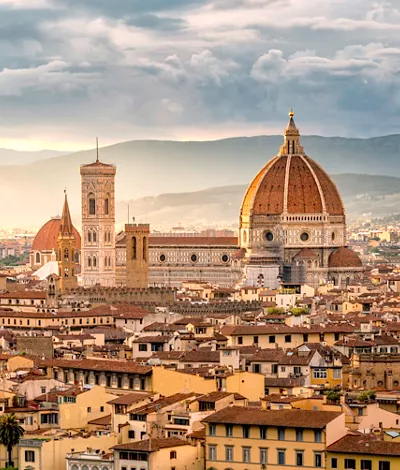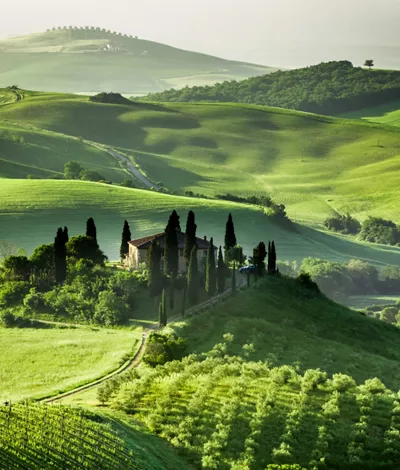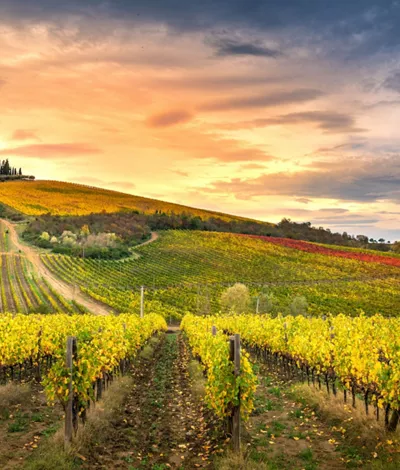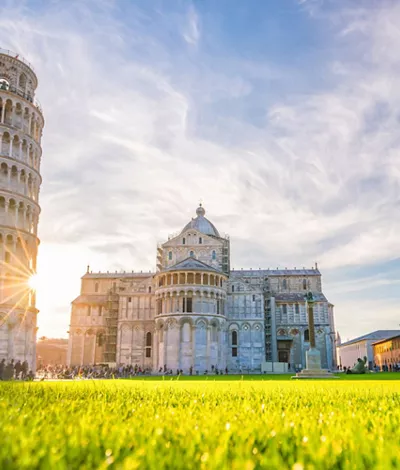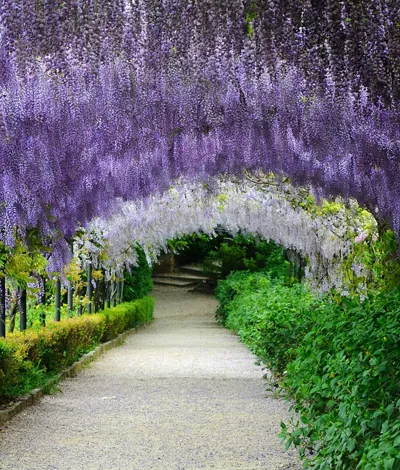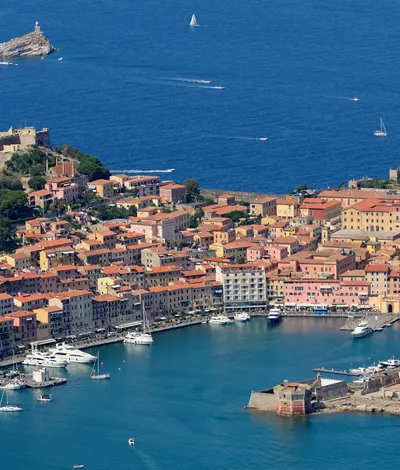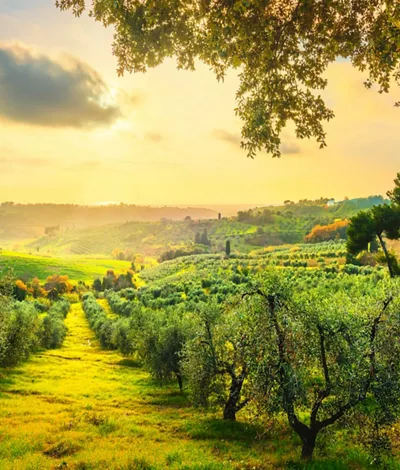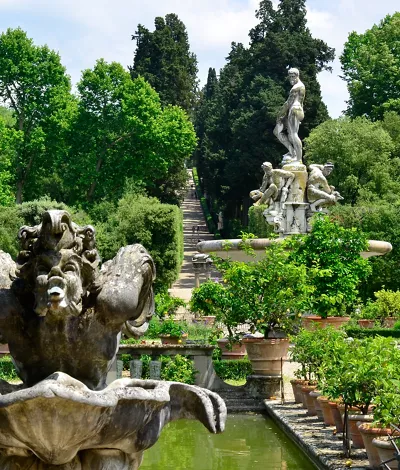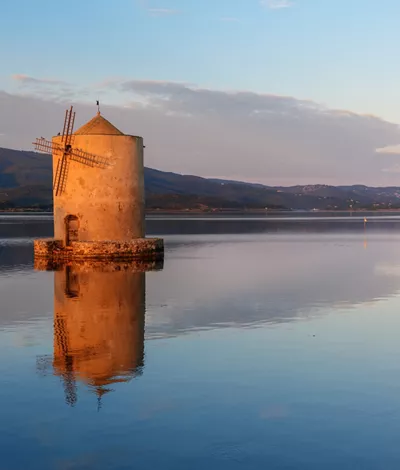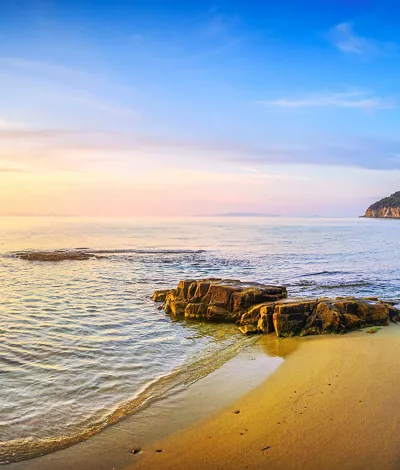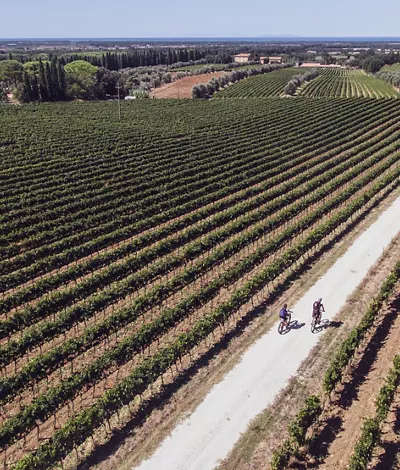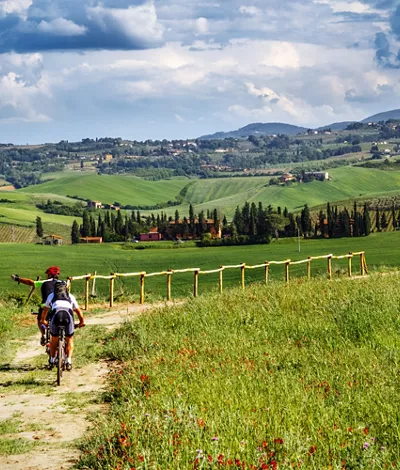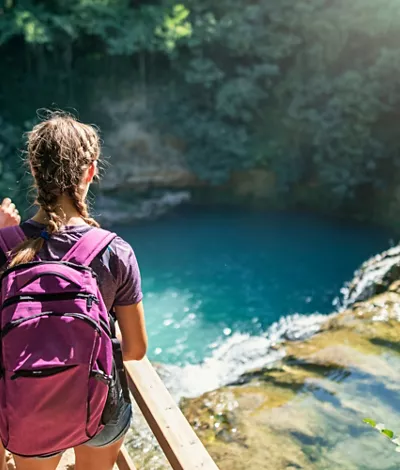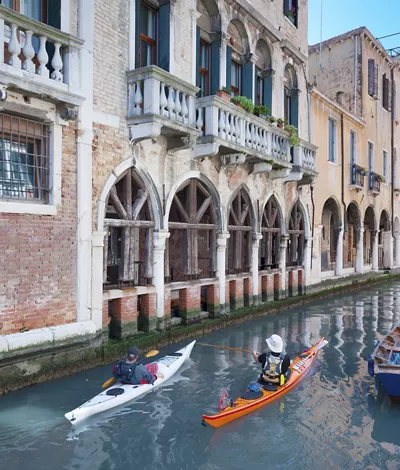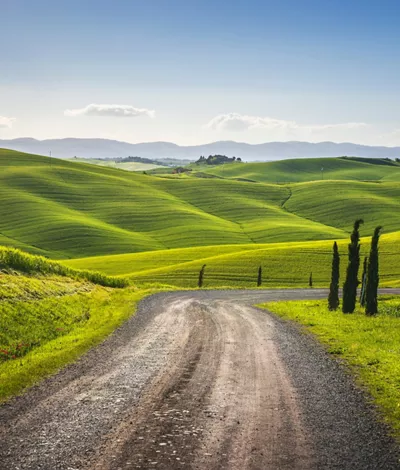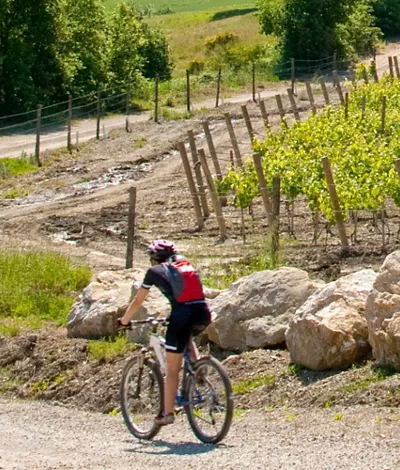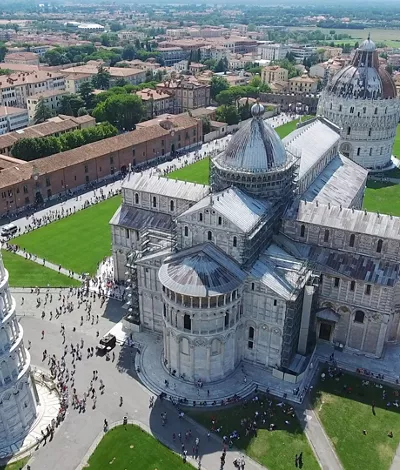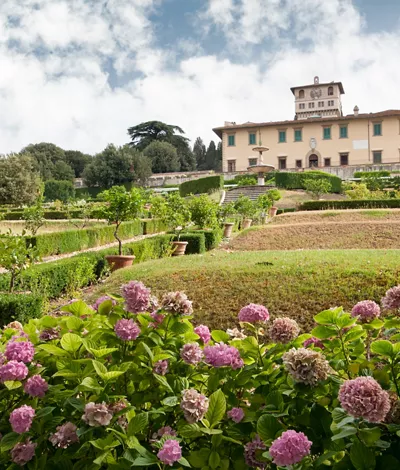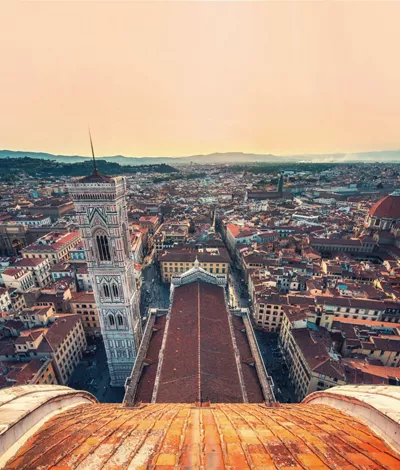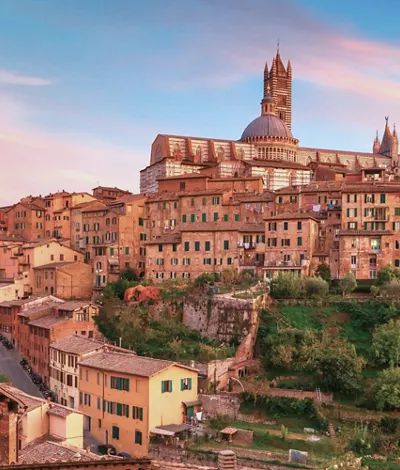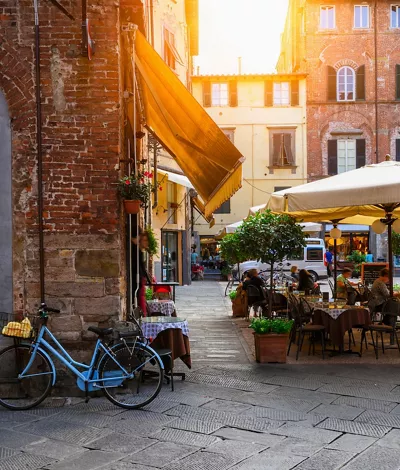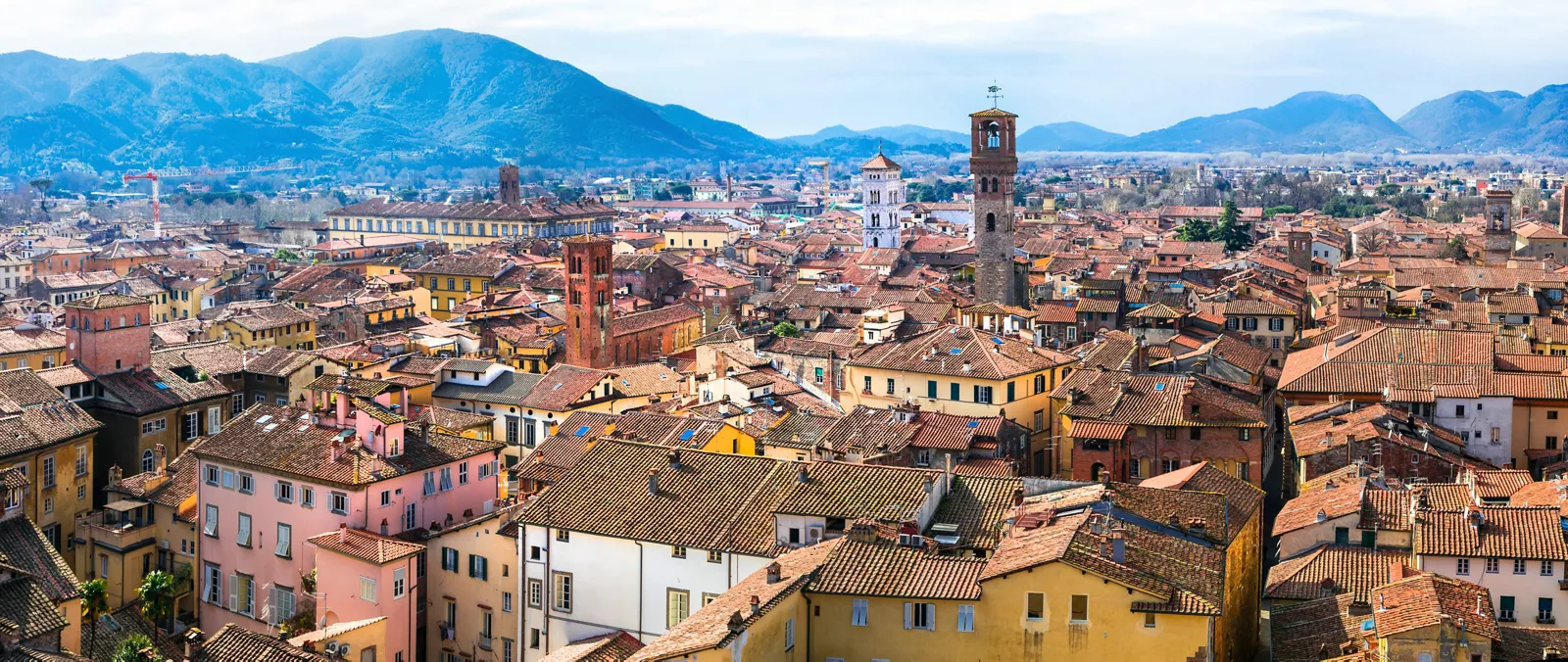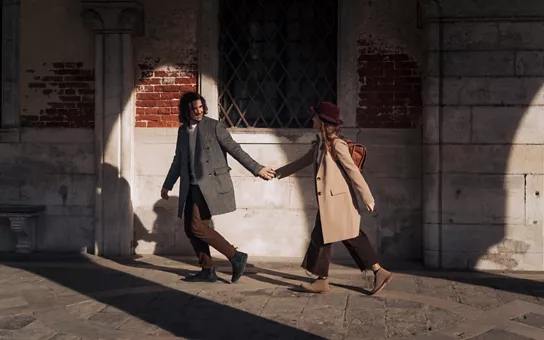Tuscany will win you over with its unique landscapes, cities of art, thousand-year-old history and fantastic food
Tuscany’s magical atmosphere evolves day by day as you stroll around the cities of art, cycle in the parks, enjoy the sea or savour its typical products, in a region with a one-of-a-kind natural, cultural and historical heritage that has fascinated visitors for centuries.
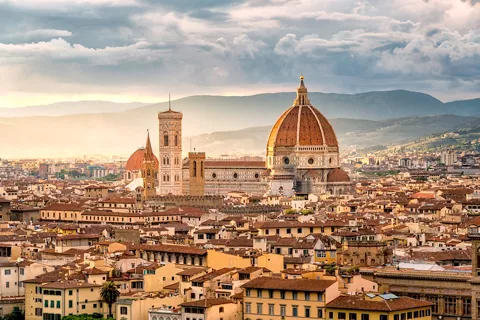
Florence
For over a millennium, Florence has been a global icon of beauty. Even its lesser-known neighbourhoods are a delight. The cradle of the Renaissance and the world capital of art in the 15th century, it boasts one of the oldest historic centres and some of the most famous museums in the world, as well as one of the most iconic and distinctive landscapes as far as the eye can see. Everything in Florence is spectacular: from the shops to the streets that lead to the hills overlooking the most touristy areas, from the most authentic and popular neighbourhoods, just outside the historic centre, to the monuments that exhibit its soul.
Discover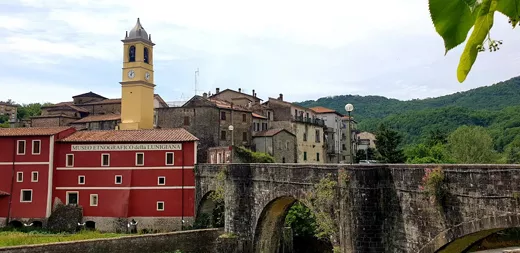
Massa-Carrara
Tuscan villages, among quarries and the Apennines The province of Massa-Carrara is waiting to be discovered. Nestled between the Tuscan-Emilian Apennines, the Apuan Alps and the Ligurian Sea, it offers nature, history, art, and fine food and wine. Don’t miss Carrara, the world capital of marble. You can enter the living heart of the mountain and touch the raw material worked by masters like Michelangelo and Canova. Continuing along the Apuan Riviera, you can enjoy the unique spectacle of the sea just a stone’s throw from the mountains. We recommend visiting the centre of Marina di Massa, bursting with Art Nouveau villas. North of the province lies Lunigiana, an ancient land, rich in history and traditions. The hilly landscape is dotted with castles and picturesque villages. A typical product of the area is Lardo di Colonnata PGI, a cured lard you can taste while strolling through the centre of towns like Pontremoli. Ufficio Informazioni e Accoglienza Turistica Via Porta Fabbrica, 1 – 54100 – Massa (MS) tel. +39 0585 490561
Discover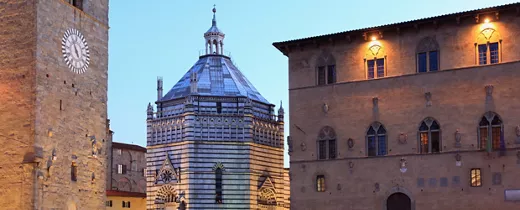
Pistoia
A land for all tastes The province of Pistoia is diversity and beauty. From the plains to the famous spas, to the mountains with its renowned ski slopes of Abetone and Val di Luce. A landscape that is always different and always rich, between historical and medieval villages and places of interest. The beating heart of Tuscany, the area is also known for the cultivation of plants and flowers popular throughout the world, thanks to the long nursery tradition carried on from generation to generation. Another feather in the cap of this area are the most renowned handmade chocolate companies in Italy and beyond. Of ancient foundation, Pistoia is a city that knows how to amaze lovers of history, art and traditions. Dubbed the “enchanted stone city”, it offers routes dotted with churches, cloisters, palaces, museums and monuments leading to the Piazza del Duomo. An obligatory stop at the Cathedral of San Zeno and, for a truly evocative experience, Pistoia Sotterranea. The thermal baths of Montecatini and Monsummano are popular destinations for medical tourism and boast waters with beneficial effects. Sports lovers will be spoilt for choice among skiing facilities, hiking trails and adrenaline attractions such as the Suspension Bridge of San Marcello Pistoiese, about 227 metres and at a height of 36 metres over a riverbed. What’s certain is that, sitting at a table in these parts, among oil, cold cuts, cheese and wine, you will never leave the table with an empty stomach.
Discover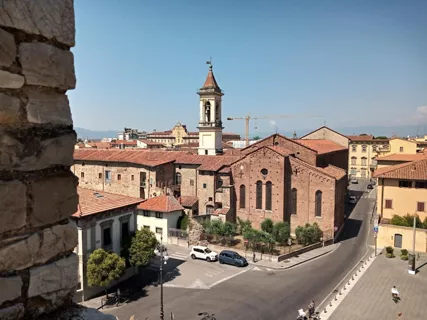
Prato
Prato is a lively city, which has been able to integrate elements of its ancient origins from the Etruscans, through to the Middle Ages into its contemporary age. It is a melting pot of cultures, in recent years it has increased its population by opening up to different ethnic groups that coexist in full integration. Famous throughout the world for its textile production, active since medieval times, Prato plays a very important role in the world of fashion. Its center is rich in history, you can visit the Emperor's Castle, built by order of Frederick II of Swabia, the only example of Frederick architecture in central-northern Italy. Piazza Duomo houses the Cathedral of Santo Stefano where the Donatello and Michelozzo Pulpit stands out at the right end of the facade. Inside there are splendid frescoes by Filippo Lippi. Other works by these extraordinary artists are kept in the Museo dell'Opera del Duomo. Wandering through the center you can visit Palazzo Datini and Palazzo Pretorio, the Basilica of Santa Maria delle Carceri by Giuliano da Sangallo, the churches of San Francesco, San Domenico, Sant'Agostino and the Spirito Santo. Samples dating back from the 5th century to the present day are preserved in the Textile Museum. The building that houses it, is a monument of industrial archeology, the only 19th century production complex still existing within the medieval walls . The surrounding area is populated by historic villages erected on settlements from the Roman era. It is an area of ancient culture and traditions, a varied world to discover.
Discover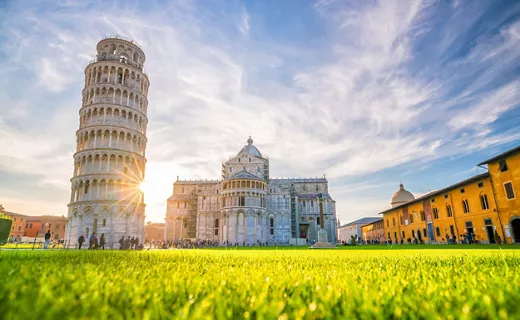
Pisa
The rich city of “Miracles” with the leaning tower, Pisa retains the charm of its ancient Maritime Republic past. Pisa is a wonderful tourist destination in the centre of Tuscany, an open-air museum but also a lively city, full of events and teeming with young people attending the university Normale di Pisa. With its rich cuisine and many historical monuments, it is a city to be rediscovered using all the senses.
Discover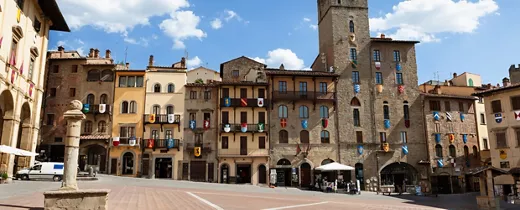
Arezzo
Ancient cradle of treasures and great artists Arezzo stands on a hilltop in southeastern Tuscany, overlooking four valleys: Valtiberina, Casentino, Valdarno and Valdichiana. The city dates back to the time of the founding of Alexandria in Egypt, as evidenced by the discovery of stone tools and the so-called “Man of the Elm” from the Palaeolithic period. Under the Romans, thanks to its position along Via Cassia, it became a centre of strategic importance, a hub of flourishing economic activity, the remains of which we can still admire today. When walking around Arezzo, we recommend visiting the Gothic-style Cathedral, with its stunning stained-glass windows by Marcillat and the restored fresco of Mary Magdalene by Piero della Francesca. Also worth visiting are the splendid Pieve di S. Maria Romanesque parish church, Piazza Grande with the Logge Vasari, the Palazzo della Fraternita dei Laici with its façade by Bernardo Rossellino, the picturesque medieval tower-houses, and the church of S. Domenico with the Crucifix painted by Cimabue. Not forgetting the Palazzo del Comune, Casa Petrarca and Palazzo Pretorio. Many famous people were born in Arezzo, including architect and art historian Giorgio Vasari, poet Francesco Petrarca, music theorist Guido Monaco, and in nearby Caprese, Michelangelo Buonarroti. The centre of Arezzo was badly damaged during World War II, but this made it the perfect set for key scenes in Roberto Benigni’s Oscar-winning film Life Is Beautiful. As you walk through, you can glimpse sets and experience atmospheres straight out of the big screen. If you arrive by car, you can park in one of the car parks outside the walls, which are connected to the historic centre by pedestrian walkways and escalators.
DiscoverLivorno
Livorno is one of the most vibrant maritime cities in Tuscany. Originally a village on the edge of the ancient and now deserted Pisan port, the town later came under Visconti and Genoese domination before being acquired by Florence in the 15th century. Livorno underwent major developments when Cosimo I de' Medici decided to make it the main port of the Grand Duchy. The renovation project was entrusted to none other than Buontalenti, to whom we owe the configuration of the historic centre as a fortified city and the construction of the New Fortress, which was built a short distance from the Old Fortress of the Pisan era. Unfortunately, Livorno experienced heavy bombing during World War II, which resulted in very little of the central core being spared. Post-war reconstruction significantly changed the appearance of the old city despite efforts to preserve the aesthetic value of the 18th-century district of Venezia Nuova, which today can be considered the "true" historic centre. The district's name comes from its canals, which connect it to the port and make it resemble a small Venice. The city experienced great artistic and cultural activity between the 19th and 20th centuries, being the birthplace of the likes of Pietro Mascagni, Giovanni Fattori, Amedeo Modigliani and Leonetto Cappiello, to name but a few. Livorno is now a popular tourist destination, mainly due to the many beaches of the Costa degli Etruschi that meander southwards from the city. There are also many city attractions, including the Mascagni Terrace, the seventeenth-century cathedral of St Francis and the baroque church of St Catherine.
Discover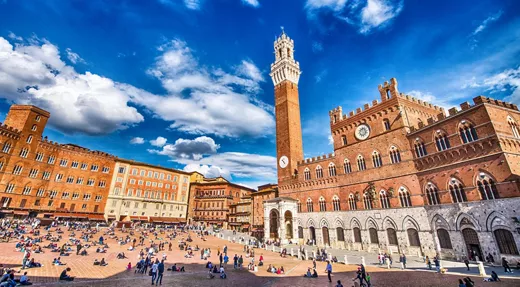
Siena
Between medieval tradition and natural spas A charming town in the heart of Tuscany, Siena preserves its medieval historical centre intact. In Piazza del Campo, one breathes an atmosphere of times gone by. This is where the Palazzo Pubblico and the Torre del Mangia face, and every year, between 2 July and 16 August, the traditional Palio, an equestrian competition between the city's neighbourhoods, held every year, between 2 July and 16 August. Don't miss the Cathedral dedicated to the Assumption, with its black and white polychrome façade and its floor full of esoteric symbols. Inside you can admire statues by Michelangelo and frescoes by Pinturicchio. The sinuous hills surrounding Siena contain countless natural and architectural treasures, all waiting to be discovered. Starting with San Gimignano, known for its towers soaring into the sky. For a break in traditional food and wine, stop in San Quirico d'Orcia, Montalcino and Montepulciano. Take a moment to relax in the waters of Rapolano Terme, Bagno Vignoni and Bagni di San Filippo. Their natural thermal baths are the ideal destination for those in search of relaxation. Did you know that the legendary sword in the stone really exists and is located right near Siena? You will find it at the Abbey of San Galgano, a basilica without its roof but which preserves its outer walls intact.
Discover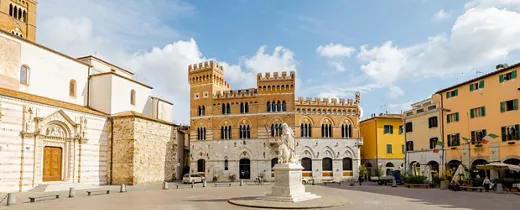
Grosseto
The green heart of the Maremma Grosseto is one of the few Tuscan cities with its medieval defensive walls intact. From above, the Medici Walls form an irregular hexagon, with six arrow-shaped corner bastions, running along a 3-kilometre-long perimeter. Don’t miss the Passeggiata Verde (Green Walk), in the shade of the vegetation planted along and on the Walls. Beyond the beautiful historic centre of the capital, the Province of Grosseto is full of surprises. Firstly, it is home to one of Italy’s most beautiful natural parks: the Maremma Regional Park, a habitat for countless species of birds and mammals, bathed by the waters of the Tyrrhenian Sea to the east. There are also plenty of places of cultural interest, including the Vie Cave Etrusche: Etruscan-built roadways that wind their way through the rock, which you can visit in the area that covers the municipalities of Sorano, Sovana and Pitigliano. The local cuisine upholds Tuscan tradition, with cured meats, full-bodied red wines and egg pasta. A speciality, typical of the lower Maremma, worth trying is bottarga di Orbetello, produced only in the lagoon area and obtained exclusively by drying the ovarian sacs of the mullet.
DiscoverCities of art, beautiful landscapes and good food: Tuscany is every tourist's dream destination
Tuscany will win you over with its unique landscapes, cities of art, thousand-year-old history and fantastic food. Tuscany’s magical atmosphere evolves day by day as you stroll around the cities of art, cycle in the parks, enjoy the sea or savour its typical products, in a region with a one-of-a-kind natural, cultural and historical heritage that has fascinated visitors for centuries.
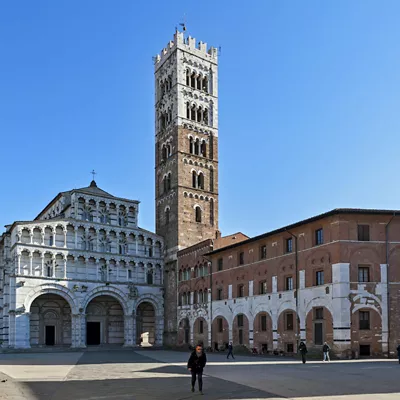

Continue living like an Italian
Subscribe to the Newsletter so as not to miss places, events and experiences for experiencing the best side of Italy: the authentic one.

Keep up to date
Would you like to learn about the most authentic experiences to be had in Italy, stay up to date on the most interesting events, discover our special offers and receive lots of insider hints and tips?


